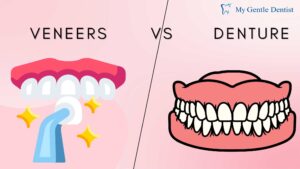Introduction to Veneers

Dental veneers are thin shells, typically made of porcelain or composite resin, that are custom-made to cover the front surface of teeth. These veneers are a popular cosmetic dental treatment to improve the appearance of natural teeth. Veneers can address various issues such as discolored, chipped, or misaligned teeth, providing a long-lasting solution to enhance the smile.
Understanding Dental Veneers
Porcelain veneers, a type of dental veneer, offer several benefits. These veneers can last a long time and provide a natural-looking appearance. When applied by a skilled dentist, porcelain veneers can significantly improve the aesthetics of your smile. The process involves the removal of a small amount of enamel to accommodate the veneer, which is then bonded to the tooth’s surface for a durable and seamless fit.
Benefits of Porcelain Veneers
The benefits of porcelain veneers extend beyond their aesthetics. These veneers are stain-resistant and can mimic the light-reflecting properties of natural teeth. Additionally, porcelain veneers do not require frequent maintenance and can last for many years with proper care. The ability to customize the shade and shape of the veneers makes them a versatile option in cosmetic dentistry.
Application of Dental Veneers
The application of dental veneers involves a detailed process. Initially, the dentist takes an impression of your teeth to create custom veneers that suit your smile. Once the veneers are fabricated, the dentist prepares your teeth by removing a small amount of enamel. Subsequently, the veneers are bonded to the front teeth using dental cement, ensuring a secure and long-lasting attachment. This application process results in a transformed smile with enhanced durability and aesthetics.
Types of Veneers

Porcelain Veneers
Porcelain veneers are a popular choice in cosmetic dentistry due to their durability and natural appearance. These thin shells are custom-made to cover the front surface of teeth, providing a long-lasting solution for various dental imperfections. When applied by a skilled dentist, porcelain veneers can significantly enhance the aesthetics of your smile by mimicking the light-reflecting properties of natural teeth.
Composite Veneers
Composite veneers are another type of dental veneer that offers a more affordable alternative to porcelain veneers. Made of composite resin, these veneers can be directly bonded to the teeth in a single visit. Although they may not last as long as porcelain veneers, composite veneers are a good option for minor cosmetic improvements, such as correcting small chips or discoloration.
Temporary Veneers
Temporary veneers are often used as a transitional solution while permanent veneers are being fabricated. These temporary veneers can help protect the prepared teeth and maintain the aesthetics of your smile until the final veneers are ready to be bonded. While not as durable as permanent veneers, temporary veneers serve an essential purpose in ensuring your comfort and confidence during the veneer placement process.
Cost and Durability
When considering dental veneers, it’s important to factor in the cost and durability of the treatment. The price of veneers can vary depending on several factors, such as the material used, the number of teeth being treated, and the complexity of the procedure. Your dentist will provide a detailed breakdown of the costs involved, including any additional treatments or follow-up appointments.
Factors Affecting Veneers Cost
The cost of veneers can be influenced by various factors, including the type of material used (porcelain or composite resin), the location of the dental practice, and any additional procedures required, such as tooth preparation or enamel shaping. It’s essential to discuss all cost-related aspects with your dentist beforehand to ensure you have a clear understanding of the total expenses involved.
Longevity of Veneers
Veneers are known for their longevity and durability when properly cared for. Porcelain veneers, in particular, can last for many years with good oral hygiene practices and regular dental check-ups. To maximize the lifespan of your veneers, it’s crucial to follow your dentist’s recommendations for maintenance, which may include avoiding certain foods that can potentially damage the veneers and using a mouthguard during sports activities to protect your teeth.
Caring for Your Veneers
Maintaining the longevity of your veneers involves proper care and regular dental visits. It’s essential to brush and floss your teeth regularly, avoiding excessive force when cleaning around the veneers to prevent damage. Additionally, using a non-abrasive toothpaste and attending scheduled dental cleanings can help preserve the appearance and functionality of your veneers for years to come.
Alternatives and Considerations

While veneers are an effective solution for enhancing the aesthetics of your smile, there are alternative treatments available that may better suit your needs. Your dentist can discuss these options with you based on your specific concerns and oral health condition to determine the most suitable treatment plan.
Options to Veneers
Alternative options to veneers include teeth whitening procedures, dental bonding, dental crowns, and dental implants, depending on the nature of your dental concerns. These treatments offer different benefits and may be more appropriate solutions for certain cases, such as severe tooth damage or missing teeth.
Candidacy for Veneers
Not everyone may be a suitable candidate for veneers, as the treatment requires healthy teeth and gums to support the veneers. Your dentist will evaluate your oral health and discuss whether veneers are the right choice for you based on factors such as the condition of your teeth, your oral hygiene habits, and your overall dental history.
Consulting with Your Dentist
Prior to undergoing any cosmetic dental procedure, including veneers, it’s essential to consult with your dentist to address any questions or concerns you may have. Your dentist can provide detailed information about the treatment process, expected outcomes, and post-care instructions to ensure you make an informed decision regarding your dental health and smile aesthetics.




